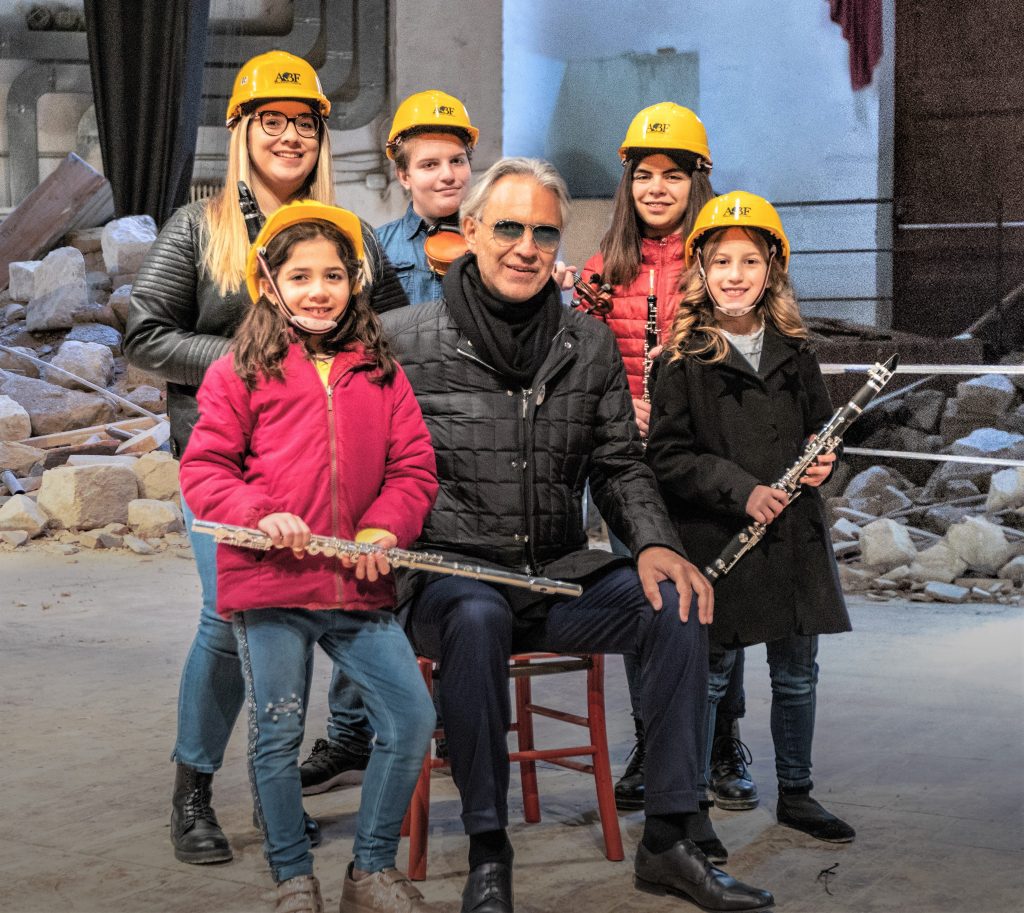AN EXCLUSIVE EVENING WITH A REMARKABLE PURPOSE
BY MAURO APRILE ZANETTI AND OLIVIA DECKER
PHOTOS BY LUCA ROSSETT
Andrea Bocelli, the world’s most famous tenor, and his family will be appearing in the San Francisco Bay Area on December 2 for an exclusive evening benefiting the Andrea Bocelli Foundation (ABF) and Festival Napa Valley. This extraordinary event is part of Festival Napa Valley’s Olivia Decker Power of Music Series and includes dinner hosted by Michael and Tara Uytengsu, featuring world class, Napa Valley wines. The event is made possible in part by the generous support of Olivia Decker, Jan Shrem, and Maria Manetti Shrem.
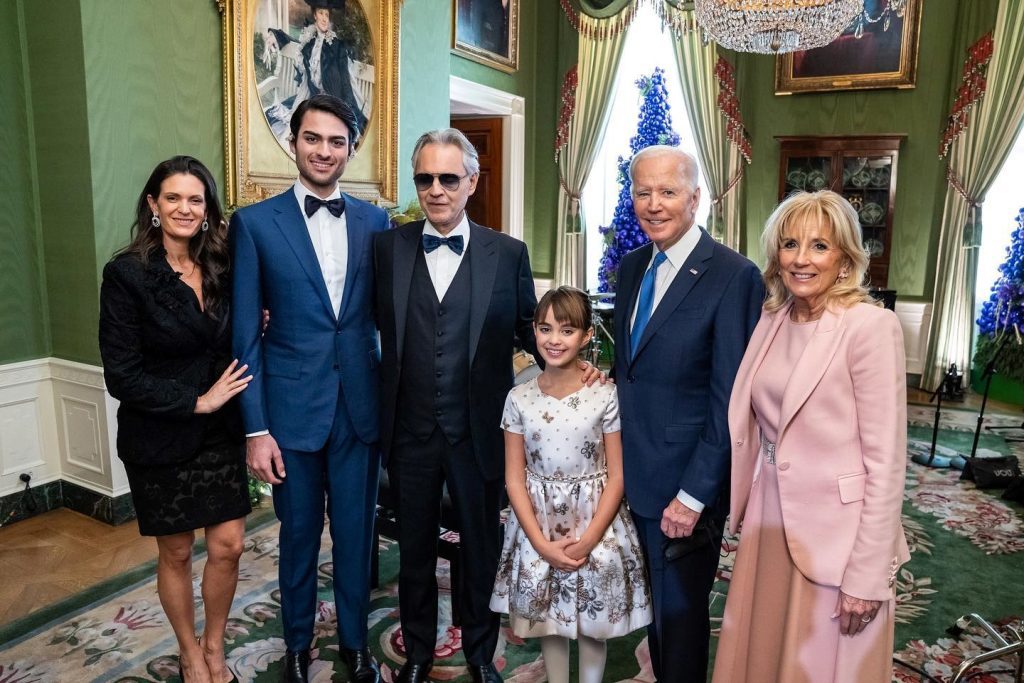
Andrea Bocelli has performed for four U.S. presidents, three popes, and royalty, including the Queen Elizabeth II Platinum Jubilee in June 2022. With over 80 million records sold worldwide, Bocelli has brought classical music to the top of international pop charts and can effortlessly render a sacred hymn or a pop song with the same perfection. You’ll enjoy his company and more at this intimate, private event with Andrea Bocelli and Family at the historic Kohl mansion. With its landmark architecture and grand views of the San Francisco Bay, the mansion provides the elegant surroundings for exquisite music, exceptional food, and world class wines from the Tusk Estates. Crafted by Philippe Melka, Tusk is renowned as one of Napa Valley’s most elusive Cabernets—adding to the allure of this remarkable evening.
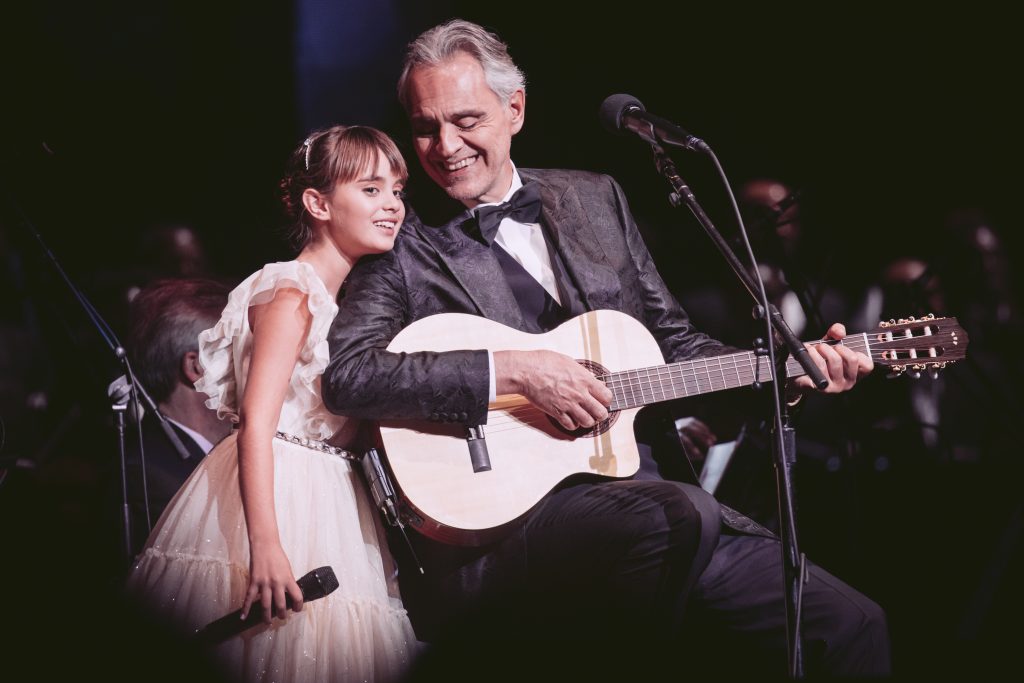
Bocelli is a philanthropist as well as an unsurpassed artist. Since 2011, the foundation that bears his name has empowered people and communities facing poverty, illiteracy, illness, and social exclusion. ABF also implements and promotes educational projects through art, music, and digital media. This meaningful evening will support Festival Napa Valley’s educational programs, Andrea Bocelli Foundation’s educational projects in Haiti and Italy, and initiatives that support Ukrainian refugee students in the communities ABF serves. Access to this exclusive benefit event is $10,000 per person ($9,600 tax deductible). A limited number of spots are available. Contact Festival Napa Valley’s patron services team at concierge@festivalnapavalley.org or call 707.927.3874 to reserve your place.
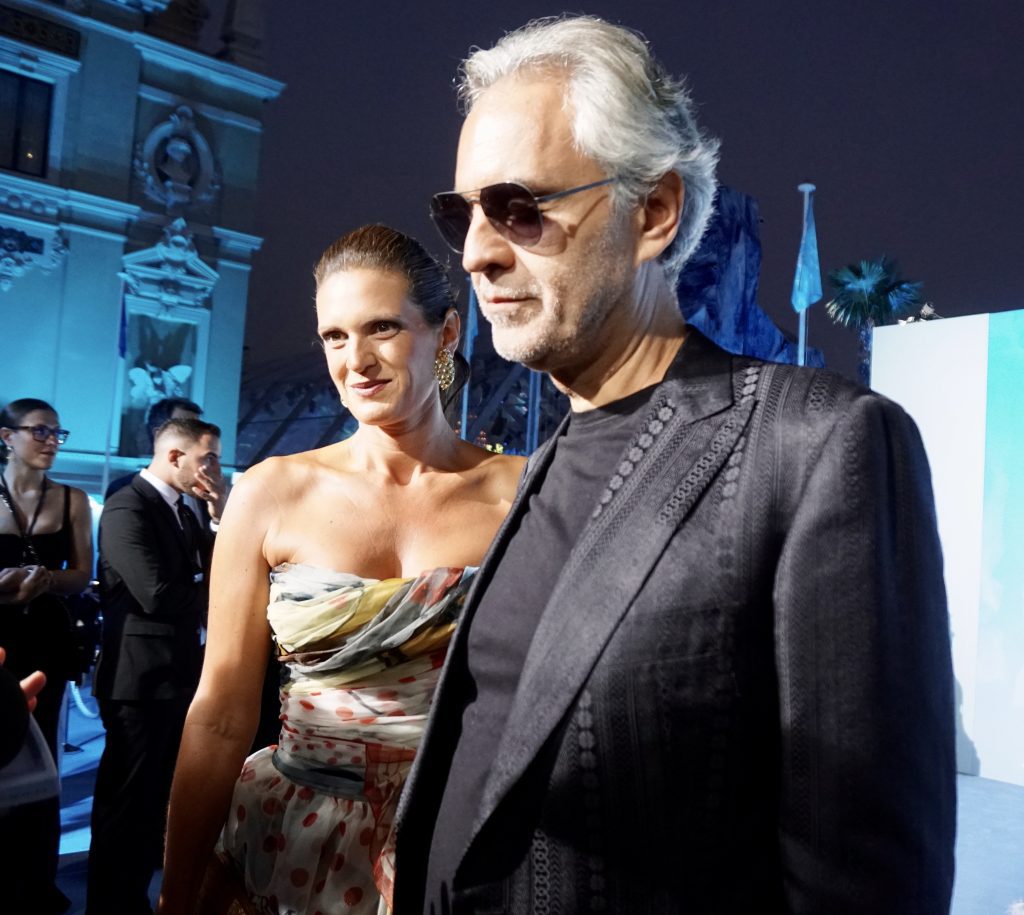
Q&A
We are proud to present you this rare, exclusive interview Andrea Bocelli granted to Haute Living to Mauro Aprile Zanetti. They discuss his life and his power of music which not only touch hearts but empowers people and the communities his foundation supports.
HL: When did you realize you wanted to become a singer? I mean, when was the moment you realized music could be truly your life and career?
AB: As a child, I was often asked to sing to the point that I began to think, “I’ll have to do this my whole life!” My passion, particularly for the opera, goes back to childhood: I knew by heart many of the most famous arias in the repertoire and would often sing them at the top of my lungs in the living room at home. Success came to me unexpectedly, when I was over the age of 35, after working my way up the ladder and through many disappointments. Eventually, however, reality exceeded all my dreams, even the boldest, the rosiest.
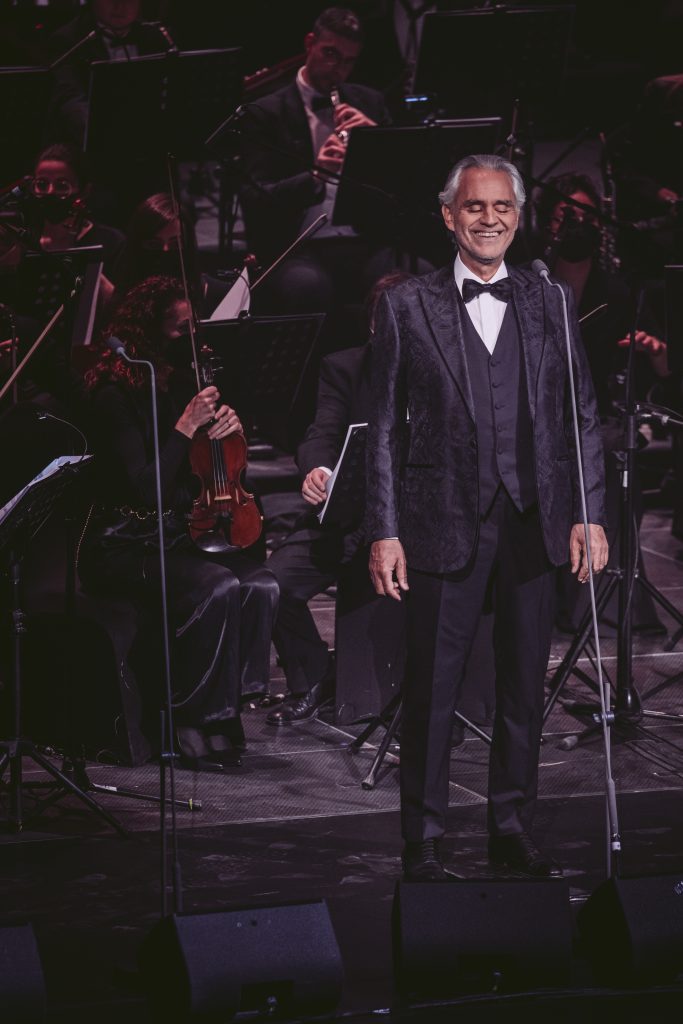
HL: What was your main music passion? Did you have any heroes in music?
AB: As a boy, who was self-taught. I sang freely what I loved most: the great operatic pages of Puccini, Verdi, Mascagni, Giordano, etc. Then my study became more systematic and more serious. My greatest hero in music has always been Franco Corelli. The encounter with his voice marked my destiny. I was a child when my nanny gave me one of his records. I still remember the excitement of hearing that voice, which went straight to my heart. Destiny would have it that, as an adult, I would later become his pupil! Corelli represents my ideal tenor; I have a real veneration for him.
HL: What does “talent” mean to you? Can young people be taught or is it innate? What did you wish you knew before your career took off? Your children, Matteo and Virginia, are following in your footsteps. What advice do you have for any young artist?
AB: Talent is a gift and not something that one can learn. If one has it, it must be substantiated by many other ingredients: ambition, humility, determination, and a spirit of sacrifice. My profession is no different from the profession of an athlete: you must practice daily and lead a regular life. The journey in learning opera singing is undoubtedly thorny, because it is also made up of sacrifices; but it is worth it, because it leads toward what I have repeatedly called “the paradise of music.”
When Matteo expressed his desire to try to pursue the artistic profession, I warned him of the difficulties that I personally knew, making him aware of how complex the show business environment is. However, I am happy about his choice, because I realize that he has found his own way and style in music, expressing his personality. I would like to remind young people that there is no such thing as an impossible dream: what matters the most is to believe in it and to pursue one’s life project with honesty, humility, and discipline. You need to be humble yet determined, optimistic and at the same time strict with yourself.

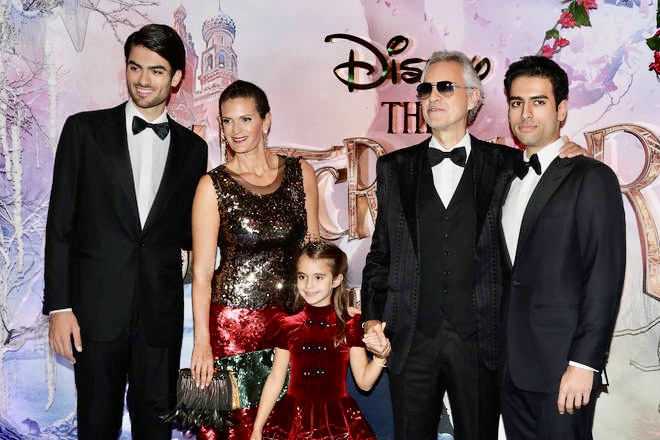


HL: You involve several artists in all your concerts, touring the world and leading by example, while fostering such an admirable, cultural diversity. You are truly able to unleash a vital energy in the crowds. What is a very specific concert, among the thousands you have already done, that you can’t forget and why?
AB: I deem equally worthy of attention anyone who seeks in my voice a moment of both tranquility and joy. Regardless of whether I am in front of tens of thousands of people or in a small school or in the ward of a hospital, in front of royalty or in the company of a few friends, the joy I receive from it and the commitment I put forth when I sing are always the same. Each concert, in almost 30 years of my active profession, has had its own importance and beauty. I admit, however, feeling a special emotion running throughout me on the occasions when I had the privilege of singing in front of the last pontiffs, from John Paul II and Benedict XVI to Pope Francis. I also remember with pleasure of the concert I held in 2011 on the Great Lawn in Central Park, a very special event that gave me the gauge of the extraordinary affection that people have for me, even overseas.
HL: You enjoy the combination of classic and contemporary influences, as opposed to strictly operatic performance. Can you elaborate the way your concerts are designed?
AB: I have never made a secret of my preference for opera. I do not like to mix different genres. I try to put them side by side, by offering in a context that is usually geared to pop, as well as operatic music, in the desire to make opera known even among those audiences that are less accustomed to that repertoire. I am a tenor, an opera singer. However, I also enjoy performing a somewhat lighter repertoire which may include great popular romance as well as the song, just as Enrico Caruso or Beniamino Gigli did 100 years ago. Thus, the main distinction I make remains that between beautiful and ugly music. My challenge is to continue to disseminate quality wherever it is present.

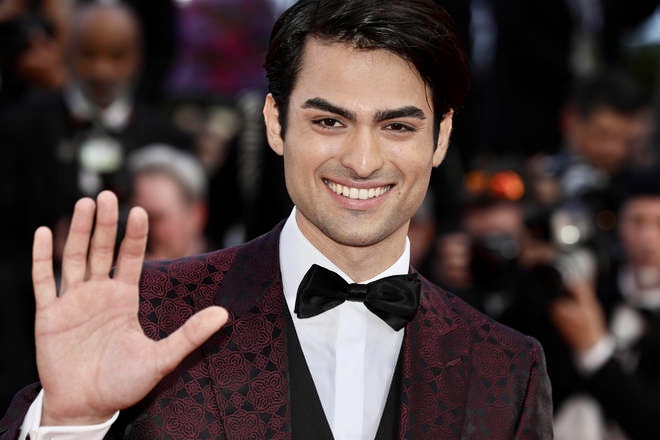

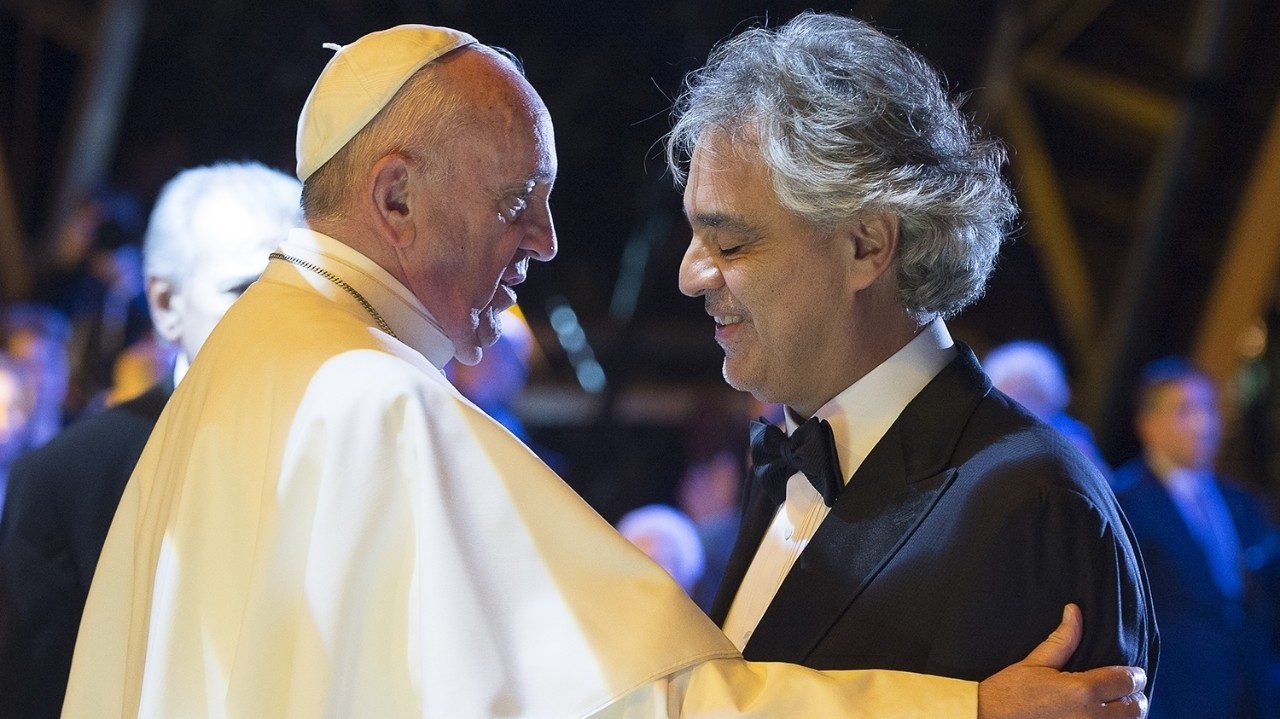
HL: Is there any specific encounter or event that changed your life? What does overcoming an obstacle generated by inner and/or outer conflict mean to you?
AB: It is life that changes us: it happens, unnoticeably yet daily. Every encounter, every reading, every meditation has been influential in contributing to my distinctiveness as an artist. The “lived experience” inevitably finds its reverberation in singing. However, the source of inspiration has always been the same, and I can summarize it with the word love: love at 360 degrees, the sensual love, the love for life, for beauty, for the brotherhood that unites and for the He Who shaped us. When, on a daily basis, we are at a crossroads (and faced with the choice between good and evil) and on every occasion, our conscience has the correct answer. And music, by touching our spiritual strings, helps us listen to the voice of our conscience.
HL: Eleven years ago, you created the Andrea Bocelli Foundation, the mission of which is “empowering people and communities.” What does “empowerment” mean these specific days of social unrest and war? You are partnering with several nonprofit organizations all over the world, raising funds in support of different causes, mainly people in need such as, in the aftermath of earthquakes, providing them with shelters; building world class hospitals for kids, such as the Meyer Hospital in Florence; and welcoming refugees from war zones. Can you tell us more?
AB: We are working across the board to offer the widest possible access to education, devoting to the citizens of tomorrow a quality education and, through the innovative potential of languages such as art, music, digital, enhancing the talent of everyone, inspiring and offering tools for growth and awareness. We are activating these programs in schools within pediatric hospitals, by means of the vocational pathways of ABF GlobaLAB and the ABF Voices Of project. The last is a multi-year, strategic program we have developed and fine-tuned, which includes the creation of regional choirs as well as other educational activities in vulnerable areas of the world. Fostering and empowering the expression of talent, as the mission of ABF states, means seeking to give our own contribution to improve the world of which we—ourselves and our offspring—are inhabitants. The only possible and successful revolution is the inner revolution: fostering it through culture means laying a foundation that can transform the individual and, in the long run, the community.
HL: Can creativity contribute to a person’s growth? How much of an influence can music and art have on people’s feelings and actions, and particularly during hard times, such as the pandemic? Hence, how can artists contribute to make the world a better place, despite all that is going on all over the globe?
AB: Art and culture are human rights. Music is the voice of the soul; it opens the mind and develops critical thinking. Education, when expressed, is awareness, in the respect of others and in the transfer of values: it is the driving force of society. Developing and improving education is the most effective response for the self-affirmation of individuals and the communities to which they belong. It is the beginning of a journey of knowledge that can transform ourselves and, in perspective, our own country. The time in history we are living through is complex and unprecedented. Apart from concerns about the serious social as well as sanitary wounds, unfortunately, the pandemic has that artists have a great responsibility within the mainstream of society. Emergency management has been penalizing music and culture, neglecting them, and often relegating them to a frill. In contrast, art (including music), I insist, is a gift that both nurtures and strengthens the spirit. I fear that its vital role has been underestimated.
HL: We often hear about a “New Renaissance,” also thanks to technology. What is your take? Aren’t children and all of us somehow overwhelmed by digital transformation? How do you handle this with your own children?
AB: We are in the midst of a digital revolution that carries with it some risks, but also a great many benefits. For instance, thanks to technology, traveling, when problematic from a logistic point of view, can be bypassed. It has already happened to me several times, [enabling me] to rehearse, study, and even record together with colleagues who were on the other side of the world. The digital revolution is underway, and the music industry is also facing radical transformations and new challenges. I am thinking, for example, of the shift from physical records to digital streaming, with the advantages and disadvantages it encompasses. This is a fact of life, and we must take it into account. We certainly welcome the digital revolution of robotics and artificial intelligence when applied to good deeds, for example, microsurgery, industry, but also music. If used properly, it can even help creativity and artistic production. As to my children, I have always tried to pass on to them the values I believe in, not by giving them advice, but by way of example. And one value I consider important (and try to apply) is that of moderation.
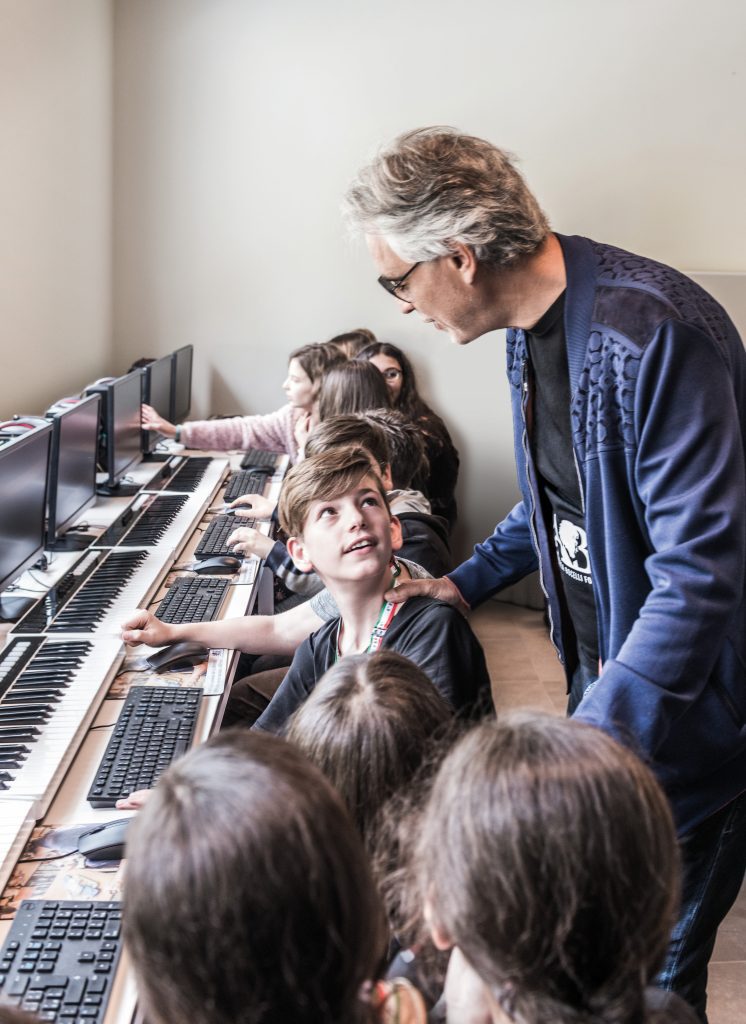
HL: Italians, by design, are in love with soccer? Aren’t you? Unfortunately, this year Italy won’t be part of the World Cup. Bummer. What a paradox also for the current European champions! But you have a special soccer team in your heart, FC Internazionale, aka “Beneamata,” which has a unique “manifesto of values” that goes under the motto “brothers of the world.” Can you tell us further about this passion of yours?
AB: I’ve always liked soccer, ever since I was a kid in boarding school, and I used to listen to “Tutto il calcio minuto per minuto” (“All soccer minute by minute”) with my little radio. It is the passion of Italians, the one for which you never grow old, a way to remain a child even at my age. When I became passionate about FC Inter, the team was very strong and literally won everything—a great line-up which, like any respectable fan, I remember in detail. In a way, soccer gives emotions related to those that are experienced in an opera house. In its ritual dimension and in its ability to attract healthy glorification and restless partisanship, even soccer projects life into the playful experience. It evokes challenges to the death, outbursts of generosity, heroism, fatal stumbles, magnificent achievements. In both cases, it is a game, but taken very seriously, a game that thrills and touches, that fraternizes and divides. As on the operatic stage, so on the court, we have an arena of heroes: the actors of the dream we choose to live, tightrope walkers running, mimicking battles, expressing virtuosity, loving and hating, falling and getting back up, exposed to the (strictly partial) judgment of the bleachers, always poised between glory and defeat.
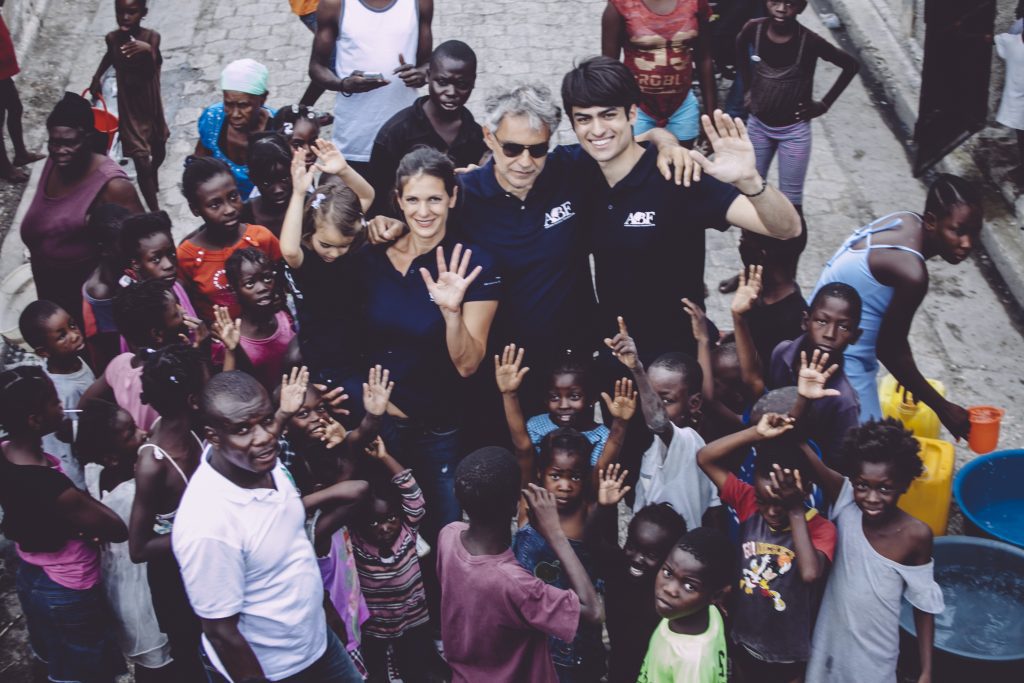
HL: Andrea, you have truly achieved some outstanding and absolutely unique things close to the impossible, also thanks to a dream team of collaborators, starting with your wife, Veronica Berti, being involved with so many different heads of state, dignitaries, and legends such as Queen Elizabeth, Prince Charles, the President of the United States Joseph Biden and his family, Hollywood stars, fashion top brands such as Dolce & Gabbana, and some of the greatest of the greats in the music world. Is there still a moonshot you are dreaming of?
AB: I dream of being able to continue singing as long as the good Lord shall wish and to bring some more serenity into people’s homes. I dream of being able to have the joy of witnessing the complete fulfilment of my children, of being able to hold their children’s children in my arms, growing old together with my wife. Last but not least, I dream of being able to continue, together with the foundation that bears my name and the many friends who support it, to offer my small contribution to making the world a better place.
